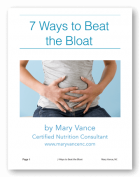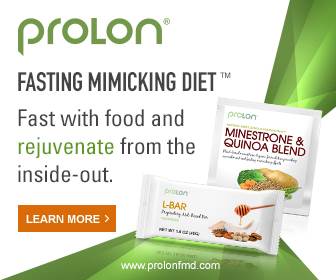In keeping with the trend of my recent post stating that eating fat doesn’t make you fat, I decided to clear up some confusing information about cholesterol too.
1. Eating cholesterol does not raise cholesterol levels
2. High cholesterol does not necessarily give you heart disease
3. Cholesterol-lowering drugs (statins) are WAY over-prescribed, do not reduce risk of heart disease, and have detrimental side effects*
4. Man made trans fats, hydrogenated oils, rancid fats (that come in the plastic jug labelled “vegetable oil”), and sugars cause inflammation that contributes to high cholesterol & heart disease
We’ve been told that eating a diet high in saturated fats causes both heart disease, weight gain, and high cholesterol. We’ve been told that saturated fats and cholesterol clog and constrict our arteries, leading to coronary artery disease and heart attack. Saturated fat has been mercilessly demonized.
I explained in my last post that saturated fat is not “bad” when consumed in whole foods. And cholesterol is not the enemy; it’s very necessary for health. Cholesterol is a waxy substance found in all your cells. It’s produced and regulated by the liver and used to produce hormones, cell membranes, and for repair. Most people take in about 200-300mg of cholesterol via food per day, and typical cholesterol synthesis by the body per day is around 1,000mg. Here’s the interesting point: The body compensates for cholesterol intake by reducing the amount synthesized. This means that if you eat, say 500 mg of cholesterol in a particular day, the body will only need to synthesize 500 mg. This means that there is not an overflow of excess cholesterol if you eat a lot of shrimp one day. Repeat after me: Eating actual cholesterol does not result in high levels of cholesterol.
Cholesterol levels above 200mg/dl are flagged as high, and statin drugs are usually recommended. We also look at HDL (typically deemed “good cholesterol”) and LDL (“bad cholesterol”). HDL act as cholesterol scavengers, picking up excess “bad” cholesterol in your blood and taking it back to your liver where it’s broken down. LDLs carry cholesterol and fats throughout your body, delivering it to different organs and tissues. But if your body has more cholesterol than it needs, the excess keeps circulating. Over time, circulating LDL cholesterol can enter your blood vessel walls and start to build up under the vessel lining. Deposits of a certain type of LDL cholesterol particles within the vessel walls are called plaques, and they begin to narrow your blood vessels. More on this in a bit.
Typically, high levels of HDL (above 50) mean you’re good, but high levels of LDL (above 100) mean you’re doomed. These readings are becoming a bit antiquated because it’s a little more involved than HDL & LDL numbers. Now we know that it’s the type of LDL that makes a difference, and there are 2 types: the buoyant bouncy type A LDL are not harmful like the smaller, dense type B LDL. Pattern B is frequently associated with low HDL cholesterol levels, elevated triglyceride levels, and the tendency to develop high blood sugar levels, most likely due to a diet high in refined foods, refined flour and grains, and sugars, corn syrups, or sodas.
Here’s what happens with arterial damage. Your body uses cholesterol for repair, as we established. It sends cholesterol to artery walls to repair nicks or damage, along with collagen, so artery walls don’t spring a leak. The body’s own band-aid! But when there is more type B LDL circulating, it can actually cause arterial damage and begin to build up as plaque. This type of cholesterol is associated with higher risk for coronary artery disease. It is oxidizes more quickly, creating more arterial damage, hardening arteries. This also increases inflammation throughout the body as white blood cells are sent to the area for repair (think what happens when you cut your finger–it swells and turns red). We hear a lot about how inflammation is bad. This is one part of that story. So, long story short here: not *all* LDL is bad. It’s the type that matters.
Some of the type A & B is dictated by genetics, but studies have show that eating more high carb foods (sugar, white flour, processed foods, foods that break down into sugar like a grain-based diet) and man-made trans fats can actually increase the type B LDL. So, basically, let it be learned: eating fat (from natural sources, like meat, dairy, or real fat, NOT the man made hydrogenated oils) does not raise cholesterol. This is an age-old myth that is finally being blown out of the water. Culprits: sugar, processed food, cereal, soda, candy, cookies, cake, baked goods, pasta, bagels, AND too many of the wrong kinds of fat, like canola and vegetable oils. Basically, everything we’ve been told to eat for better health because it’s low fat. Look, if this was true, shouldn’t we all have low cholesterol by now? With our fat free snacks and our low fat meals? I talked about this in my last post.
Look, I know it’s complicated. I know you’re skeptical. When it comes down to it, remember that your body uses cholesterol for repair, and if you have too much damaged/oxidized LDL circulating, your body will use that for repair, which increases arterial damage, causes inflammation, and hardens arteries, leading to disease. Eating processed food increases arterial damage because is made with nutrient-poor, refined, and structurally damaged ingredients like rancid vegetable oils (soybean, corn, cottonseed, canola) that have been heated, damaging the delicate fatty acids. Too many damaged vegetable fats (the lower in saturated fat kind we’ve been told to eat) only contribute to the problem. We have tinkered too much with nature in processed food, trans fats, and a diet unnaturally high in carb based foods. We need saturated fat for structural repair, just not in the form of birthday cake and ice cream. Cut the sugar, ditch your low fat snacks, and stick to whole foods, lots of veggies, EGGS!, organic meats, and the good fats (even saturated!): butter, ghee, coconut & palm oils, olive oil, avocado.
Recommended reading
Know Your Fats, by Mary Enig
The Cholesterol Myth, by Uffe Ravnskov
What the HDL is Wrong with My Numbers?
The Great Cholesterol Myth: Why Statins Don’t Prevent Heart Disease
My post on statins
Please share and +1!

Mary Vance is a Certified Nutrition Consultant and author specializing in digestive health. She combines a science-based approach with natural therapies to rebalance the body. In addition to her 1:1 coaching, she offers courses to help you heal your gut and improve your health. Mary lives in San Francisco and Lake Tahoe in Northern California. Read more about her coaching practice here and her background here.







Thanks for the info about cholesterol and all that kind of stuff. They are really helpful and please continue posting! 🙂
Thanks for sharing this very good article about cholesterol. =)
Such a great article to read. Very informative and useful.